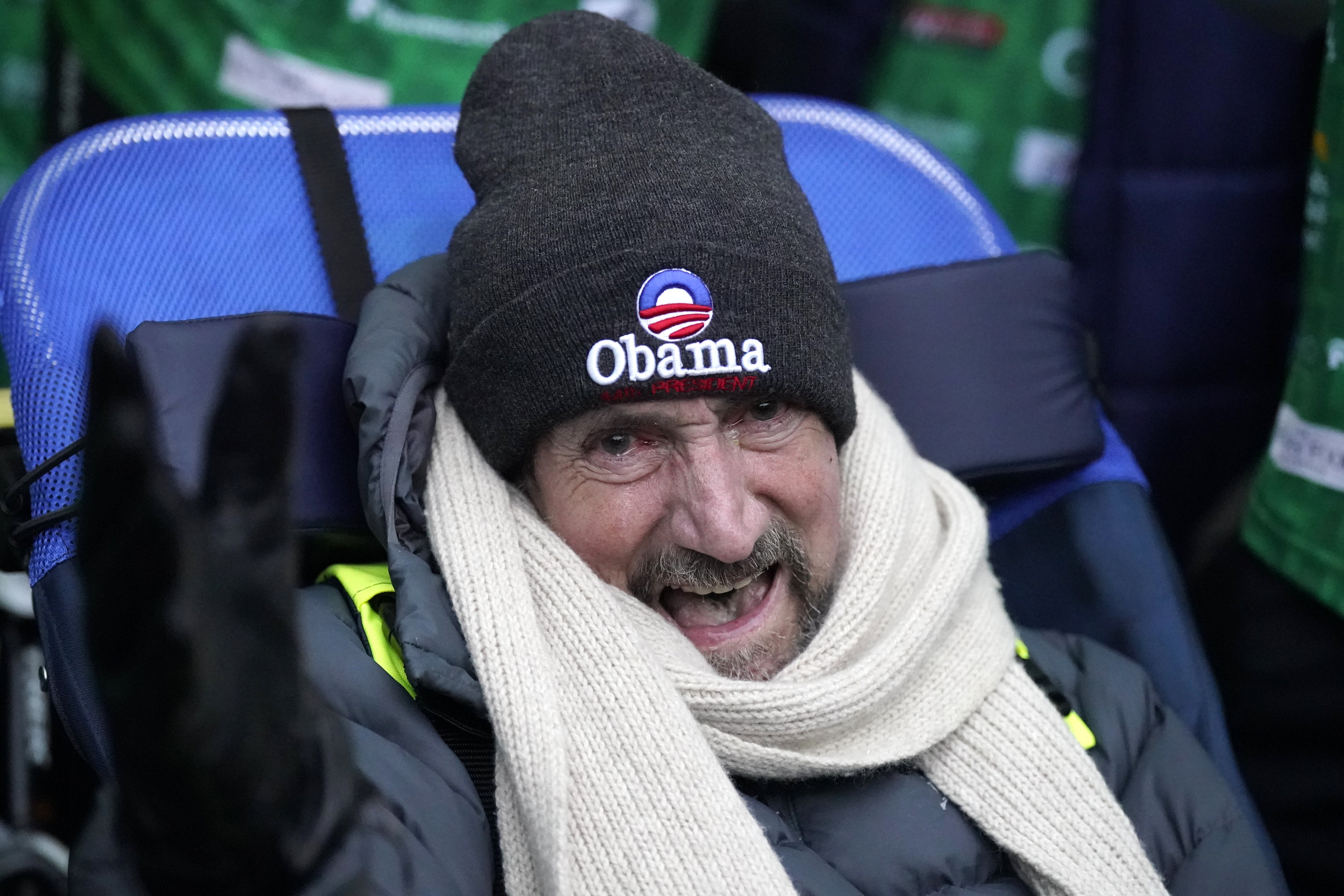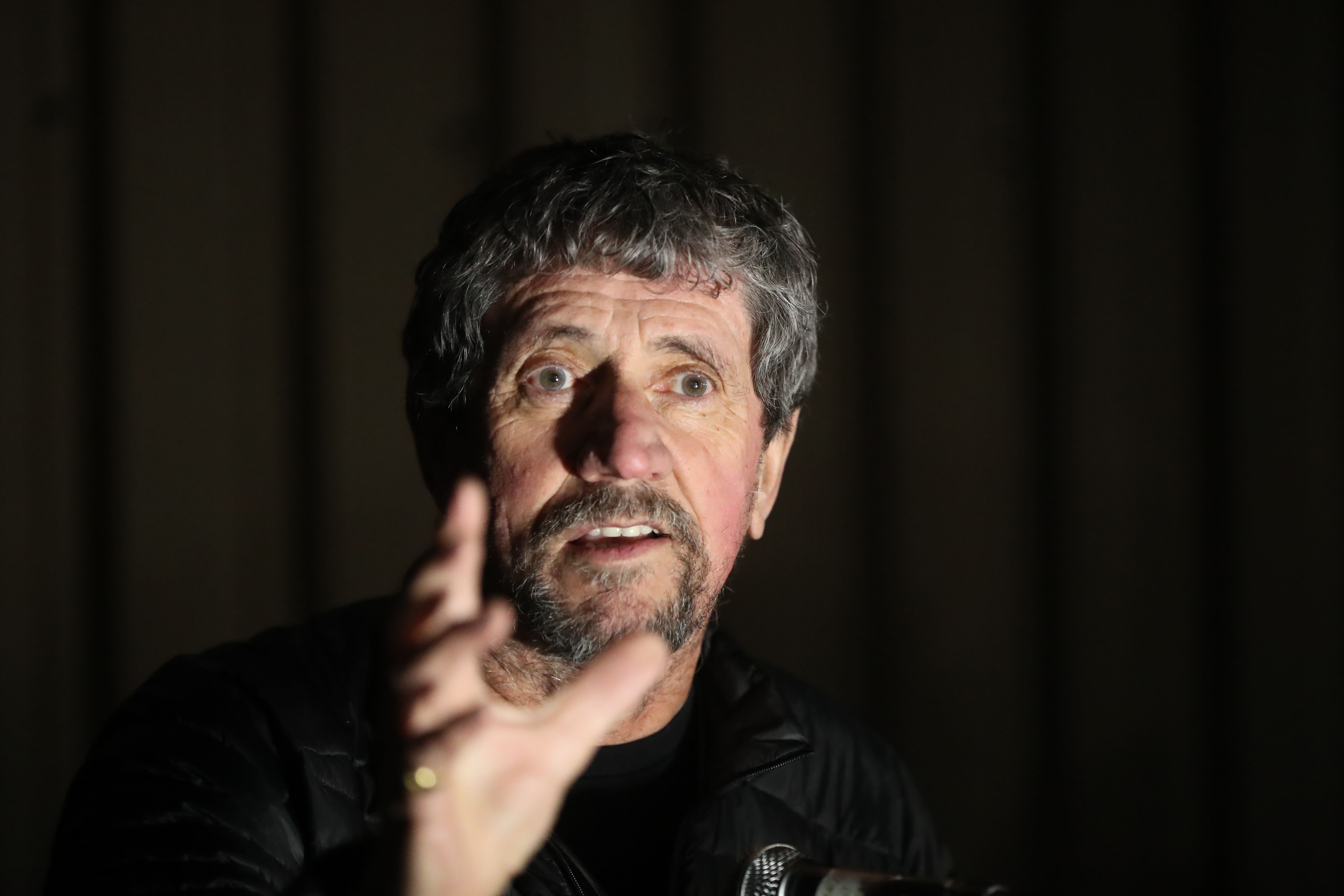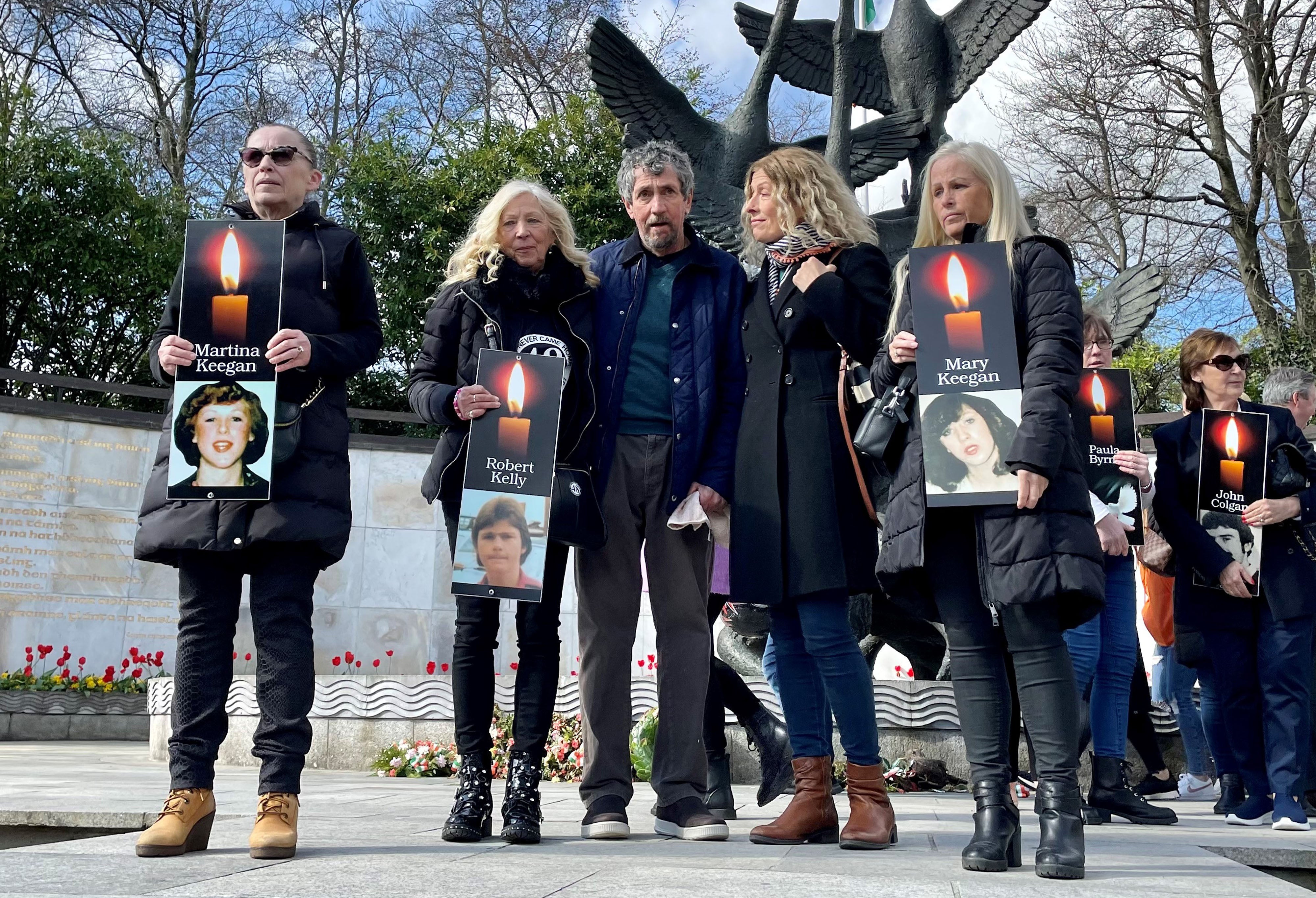Legendary RTE journalist Charlie Bird dies after long battle with motor neurone disease
Mr Bird was one of the best-known faces in Irish journalism for several decades

Your support helps us to tell the story
From reproductive rights to climate change to Big Tech, The Independent is on the ground when the story is developing. Whether it's investigating the financials of Elon Musk's pro-Trump PAC or producing our latest documentary, 'The A Word', which shines a light on the American women fighting for reproductive rights, we know how important it is to parse out the facts from the messaging.
At such a critical moment in US history, we need reporters on the ground. Your donation allows us to keep sending journalists to speak to both sides of the story.
The Independent is trusted by Americans across the entire political spectrum. And unlike many other quality news outlets, we choose not to lock Americans out of our reporting and analysis with paywalls. We believe quality journalism should be available to everyone, paid for by those who can afford it.
Your support makes all the difference.Former RTE correspondent Charlie Bird has died aged 74 after a long battle with motor neurone disease.
The veteran broadcaster, who reported on a variety of issues from the Stardust fire tragedy in 1981 to the Northern Ireland peace process, has been vocal about his terminal diagnosis.
He helped raise more than 3.3 million euro for charity in a campaign that saw him climb Croagh Patrick in 2022.
Seamus Dooley, the Irish Secretary of the National Union of Journalists, said Mr Bird’s life “should not be defined by his illness”.
He said: “Supported by his wife Claire, Charlie lived his battle with Motor Neurone Disease in the public gaze, with characteristic determination and searing honesty.
“The qualities he has manifested during his illness – grit, fierce determination and generosity of spirit, were the same qualities which marked Charlie Bird as a journalist.”

Mr Dooley added that Bird, who was a former chair of the NUJ Dublin Broadcasting branch, “was passionate about news and had a unique ability to develop relationships”.
“He was stubborn and relentless in pursuit of whatever he set out to achieve.
“His life should not be defined by his illness but by the remarkable qualities he displayed in the face of adversity. He leaves a remarkable legacy.”
Charlie Bird: From roving reporter to campaigner
For nearly 40 years, Irish broadcaster Charlie Bird brought stories from around the world to TV screens across the country.
One of the best-known faces in Irish journalism for several decades, he was a roving reporter at RTE in the truest sense, with his work taking him from his hometown of Dublin to Baghdad, Moscow and Belfast.
His instinctive grasp of the news business made him a familiar face on Irish TV while a burgeoning celebrity profile in later life meant he was just as well-known for his characteristic style and campaigning work as his broadcasting career.
In later years, that campaigning focused primarily on raising money for research into motor neurone disease.
Mr Bird revealed in October 2021 that he had been diagnosed with the disease, prompting waves of sympathy from the Irish public.
He would go on to speak openly about his struggles with swallowing and eating, as he faced down the debilitating disease.
A fundraising hike up Croagh Patrick organised by Mr Bird, dubbed Climb With Charlie, raised more than three million euro for the Irish Motor Neurone Disease Association and Pieta in 2022.

By the time the climb took place, his real voice had been replaced with an artificial one generated through years of clippings in the RTE archive.
It was a voice that few people who watched the news during a turbulent era on the island could ever forget.
Mr Bird, who joined RTE as a researcher in 1974, was never far from the centre of the biggest story.
His tenacity as a reporter made him a key media contact for the IRA during the latter years of the Troubles while his work on the scandal that engulfed the National Irish Bank cemented his reputation as a journalist with serious investigative clout.
His career had both ups and downs.
A spell as Washington correspondent for RTE ended early as Mr Bird struggled to make inroads in the US.
“I was good at nosing out stories and meeting people. So you try and stick to what you are good at, but again, in hindsight, I wouldn’t have gone to America,” he said years later.
He also sometimes found himself at the centre of the story, such as when he was attacked during loyalist rioting in Dublin in 2006.
Latterly, he emerged as a campaigner.
One of the first reporters on the scene of the Stardust nightclub fire in 1981, Mr Bird never severed his links with the families and their campaign for justice.
In February 2022, ill health did not keep him away from the annual commemoration of the tragedy.
“I admire your courage and your bravery. Keep fighting for justice. If the Stardust tragedy happened in some middle-class area, or indeed on the southside of Dublin, we would not be here today, still trying to find out what happened,” he told the crowd.
He also threw himself into the campaign for same-sex marriage in Ireland in 2015.
Mr Bird, with his unusual name and canny ability to sniff out stories, was perhaps always destined for success.
Yet he was always clear why he became the go-to newsman of his generation.
“I would have walked over absolutely anyone to get a story. I had to use my fingernails to make up for lack of talent,” he said.
Join our commenting forum
Join thought-provoking conversations, follow other Independent readers and see their replies
Comments